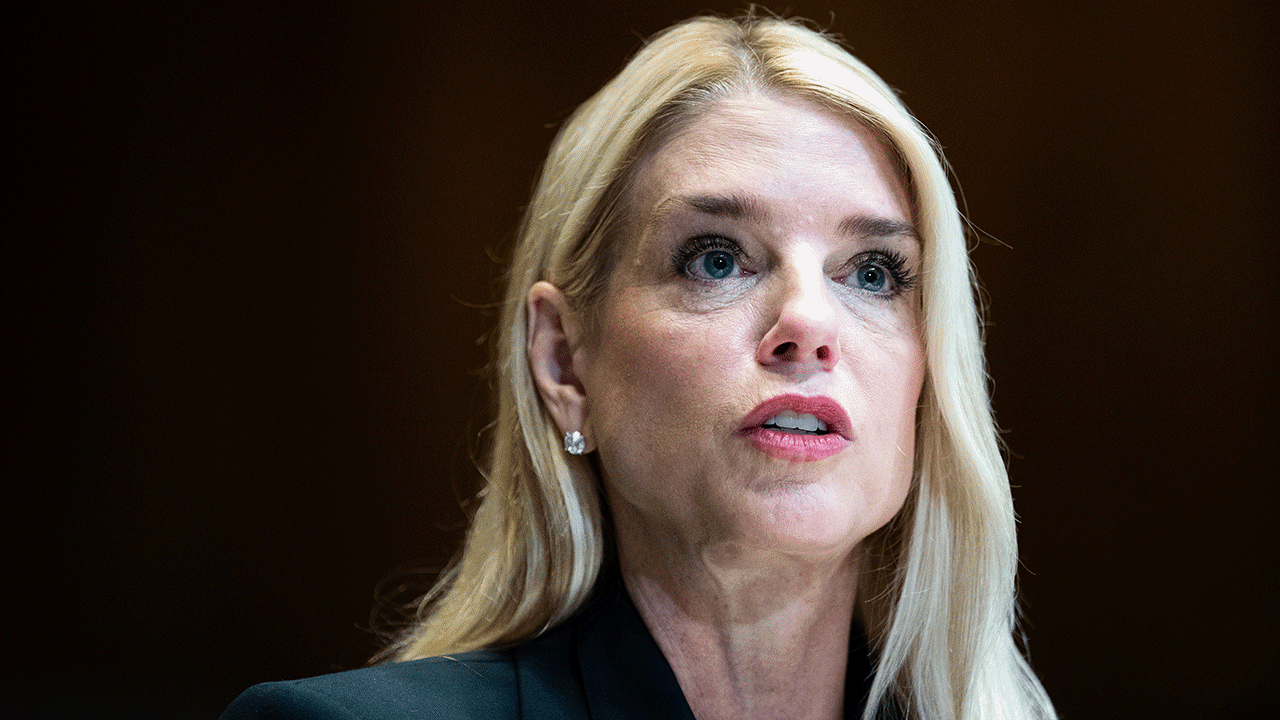INTERNACIONAL
Minnesota faces federal lawsuit for offering illegal immigrants college tuition benefits denied to Americans

NEWYou can now listen to Fox News articles!
The Department of Justice (DOJ) filed a complaint challenging laws in Minnesota that provide free and reduced in-state tuition to illegal aliens, claiming the laws are unconstitutional.
Under federal law, higher education institutions are prohibited from providing benefits to illegal aliens not offered to U.S. citizens.
According to the DOJ, Minnesota’s laws unconstitutionally discriminate against U.S. citizens and are in direct conflict with federal law.
«No state can be allowed to treat Americans like second-class citizens in their own country by offering financial benefits to illegal aliens,» Attorney General Pam Bondi said. «The Department of Justice just won on this exact issue in Texas, and we look forward to taking this fight to Minnesota in order to protect the rights of American citizens first.»
DISCOUNTED COLLEGE TUITION FOR ILLEGAL IMMIGRANTS POLICY LEADS DOJ TO SUE KENTUCKY
Attorney General Pam Bondi and the Department of Justice are suing the state of Minnesota for allowing illegal immigrants to get free or reduced in-state tuition, which is not afforded to all U.S. citizens. (Tom Williams/CQ-Roll Call, Inc via Getty Images)
By filing the lawsuit, the DOJ is demanding that Minnesota stop the enforcement of a law requiring public colleges and universities to provide in-state tuition rates and free tuition based on certain income circumstances to immigrants in the country illegally who maintain state residency.
Federal law prohibits higher education facilities from providing education benefits to illegal immigrants, which are not offered to U.S. citizens.
The lawsuit comes just weeks after the DOJ took actions against Texas for providing similar benefits to illegal immigrants.
DOJ SUES TEXAS FOR OFFERING IN-STATE COLLEGE TUITION TO ILLEGAL IMMIGRANTS IN ALLEGED VIOLATION OF FEDERAL LAW

The sun shines on the Minnesota State Capitol on Monday, Feb. 12, 2024, in St. Paul, on the opening day of the 2024 session of the Minnesota Legislature. Lawmakers have a relatively modest agenda ahead after a momentous 2023 session that saw Democrats use their newfound full control of the statehouse to enact an ambitious list of their priorities. (AP Photo/Steve Karnowski)
Both lawsuits have been filed in response to two executive orders signed by President Donald Trump since returning to the Oval Office in January.
The executive orders were signed to ensure illegal immigrants cannot receive taxpayer benefits or preferential treatment.
One of the orders, «Ending Taxpayer Subsidization of Open Borders,» ordered all agencies to «ensure, to the maximum extent permitted by law, that no taxpayer-funded benefits go to unqualified aliens.»
The other order, «Protecting American Communities From Criminal Aliens,» directs officials to «take appropriate action to stop the enforcement of State and local laws, regulations, policies, and practices favoring aliens over any groups of American citizens that are unlawful, preempted by Federal law, or otherwise unenforceable, including State laws that provide in-State higher education tuition to aliens but not to out-of-State American citizens.»
TRUMP ADMIN SUES COLORADO, DENVER OVER ‘SANCTUARY LAWS,’ ALLEGED INTERFERENCE IN IMMIGRATION ENFORCEMENT
Ultimately, Texas complied with the DOJ and stopped enforcing the Texas Dream Act, which was originally introduced in February 2001.
The legislation, signed by Gov. Rick Perry, a Republican, June 16, 2001, removed federal immigration status as a factor in determining eligibility to pay in-state tuition at Texas public colleges and universities for students who graduate from a Texas high school and who meet the minimum residency, academic and registration criteria.
While the state immediately stopped enforcement, the American Civil Liberties Union (ACLU) has since intervened.
On Tuesday, the ACLU of Texas, alongside organizations like the Texas Civil Rights Project and Democracy Forward, filed a motion to intervene in the litigation to defend the constitutionality of the Texas Dream Act against the DOJ.
The ACLU said the DOJ’s order was agreed to by Texas without proper process and creates «sweeping uncertainty» for students and colleges.
CLICK HERE TO GET THE FOX NEWS APP
«As students prepare to attend school in the fall, the failure of neither the DOJ nor the attorney general to defend the Texas Dream Act threatens their ability to afford tuition – and suddenly threatens their dreams of pursuing higher education,» the ACLU said in a press release. «By moving to intervene, these groups and individuals hope to challenge this abusive litigation strategy and defend the Texas Dream Act, which has enabled a generation of Texans to grow their careers and become leaders in our communities.»
Fox News Digital has reached out to Gov. Greg Abbott’s office for comment on the matter.
INTERNACIONAL
Dublin protesters clash with police, burn vehicle after migrant accused of sexually assaulting Irish girl

NEWYou can now listen to Fox News articles!
Protesters set a police car on fire and hurled glass bottles at officers in Dublin, Ireland, on Tuesday night after an illegal migrant was arrested for allegedly sexually assaulting a 10-year-old Irish girl who was in state care.
The violence erupted outside the City West Hotel, a sprawling former hotel-turned migrant center where an illegal migrant — who had deportation orders standing against him — is accused of attacking the girl late Sunday night.
Irish police, An Garda Síochána, said that six people were arrested during the clashes and one female police officer suffered a foot injury.
HERE’S WHY IRELAND IS AT BOILING POINT OVER MASS IMMIGRATION
Onlookers film a Garda vehicle burning as a demonstration outside a hotel housing asylum seekers turned violent in Saggart, southwest Dublin, on Oct. 21, 2025. Police in riot gear clashed with hundreds of protesters after allegations that a 10-year-old girl was sexually assaulted. (Peter Murphy / AFP via Getty Images)
Police said their officers were subject to «sustained attacks» as they tried to cordon off the building. Nearly 300 police were dispatched to the area in Saggart.
Some protesters were seen waving Irish flags while others could be heard chanting, «Get them out, get them out,» in reference to the 2,000 migrants living at the shelter.
Police said protesters hurled hundreds of empty glass bottles from nearby garbage containers and bricks at officers, while fireworks were also discharged. A police helicopter was targeted with lasers, a spokesperson said.
Men on horseback attempted to breach police lines by charging at law enforcement, police said. Police used pepper spray as they tried to disperse the crowd.
«An Garda Síochána facilitates peaceful protests on a daily basis. This was obviously not a peaceful protest,» Garda Commissioner Justin Kelly said in a statement. «The actions this evening can only be described as thuggery. This was a mob intent on violence against Gardaí.»

A protester films as a Garda vehicle burns during violent clashes outside a hotel housing asylum seekers in Saggart, southwest Dublin, on Oct. 21, 2025. (Peter Murphy / AFP via Getty Images)
Irish Prime Minister Micheál Martin condemned the attacks on police and said there was «no justification for the vile abuse against them.»
On Wednesday, he said the girl who was allegedly raped had not been protected by the state and the circumstances around the alleged attack are of «deep concern.»
THOUSANDS MARCH IN DUBLIN AGAINST IRELAND’S MASS MIGRATION POLICIES AS MCGREGOR PURSUES PRESIDENTIAL BID
The victim was in the care of child protection services, known as «Tusla,» which said she had absconded from staff during a planned recreational trip in the city center. It is unclear how she got in contact with the suspect.
The suspect, who is in his 20s, is originally from Africa, according to the Irish Mirror. He arrived in Ireland six years ago and failed his application for international protection in 2024 and was ordered deported in March, according to the Irish Times.
The incident took place on the grounds of Citywest, a former hotel which for the last few years has been housing migrants seeking international protection.
The Irish government bought the hotel in September for around $150 million with the aim of turning it into a permanent migrant facility despite several protests by locals.

A protester waves the Irish flag in front of riot police on Oct. 21, 2025, in Dublin, Ireland. Demonstrators gathered outside the Citywest Hotel after police arrested a foreign national in connection with the alleged rape of a 10-year-old girl. (Getty Images)
Tensions around mass immigration continue to bubble since November 2023 when hundreds of rioters looted shops, set fire to vehicles and threw rocks at police officers after three young children were stabbed outside a school allegedly by an Algerian-born suspect who had become an Irish citizen.
Last week, a 17-year-old Ukrainian was murdered just days after he came to Ireland and was placed in asylum care operated by Tusla. A Somalian youth, also an asylum seeker and described as a minor, has been charged with his murder, according to RTE News.
CLICK HERE TO GET THE FOX NEWS APP
A homeless foreign national was arrested and charged last week with the murder of an 89-year-old Irish woman, per the Irish Independent.
On Friday, Irish people go to the polls to elect a new president.
europe,crime,ireland,immigration,illegal immigrants,migrant crime,police and law enforcement
INTERNACIONAL
Government shutdown knowledge: gaming out its potential end

NEWYou can now listen to Fox News articles!
«I know that I know nothing» – Socrates
«You don’t know nothing» – Baseball Legend Yogi Berra
Socrates may have been claiming ignorance, Berra was talking about baseball, but both may as well have been talking about the government shutdown.
So when will it end?
«You shouldn’t ask me because I’m the guy who said it’ll only last five days,» Rep. Andy Biggs, R-Ariz., said on Fox. «But I will tell you, a couple of Democrat senators recently indicated that they think this is going to go ‘til at least the first of November.»
However, Biggs added that he doesn’t «see an end in sight.»
GOVERNMENT ENTERS LONGEST FULL SHUTDOWN IN US HISTORY WITH NO END IN SIGHT
The government shutdown is now entering its fourth week. (AP Photo/J. Scott Applewhite, File)
Whether you are Socrates or Yogi Berra, we don’t know «nothing.» Which technically means that we do know something.
However, I do know proper grammar.
The one thing that I do know in this case is that I don’t know anything about ending the government shutdown.
REPORTER’S NOTEBOOK: GOVERNMENT SHUTDOWN STALLS AS DEMOCRATS DEMAND OBAMACARE SUBSIDY EXTENSION
Regardless… Is it even possible to game out when the government shutdown may end?
Congressional Republicans believed that Democrats would fold after a matter of days once funding lapsed in the wee hours of Oct. 1. Then Republicans argued that Democrats would cry «uncle» once federal workers missed their first paycheck last week. Later, the GOP suggested Democrats would keep the government shuttered through the «No Kings» rallies around the country last weekend.
The GOP argued that Democrats needed to show their base that they were «fighting» against President Donald Trump.
«Now that they had their protests, I just pray that they come to their senses and re-open the government this week,» said House Speaker Mike Johnson, R-La.

Rep. Andy Biggs, R-Ariz., says he doesn’t «see an end in sight.» (Getty Images)
House Minority Leader Hakeem Jeffries, D-N.Y., accused Republicans of continually changing their reasons for why Democrats are blocking the GOP bill to fund the government.
«In a few days, it will be about something else,» Jeffries said.
So, we enter the ice age of Congressional inactivity as the government shutdown enters its fourth week.
Who could have predicted it?
Then again, who could have predicted thieves could make off with millions of dollars of jewelry inside the Louvre in an historic heist? At least the bandits stole our attention away from the government shutdown for a bit.
SHUTDOWN STANDSTILL: NO HEADWAY UNTIL THERE’S ‘INCENTIVE,’ POLITICOS LAMENT
That said, everyone knows (even if they won’t say it publicly) who will likely end the government shutdown: Trump.
He’s not just the president. Trump has a sway over Republicans in Congress that Ronald Reagan could only envy. So until he joins the fray, the government will remain closed.
«Donald Trump definitively needs to get involved. He needs to get off the sidelines. Get off the golf course and actually decide to end the shutdown that he’s created and that he has allowed to happen,» Jeffries said.
«Donald Trump, instead of leaving the country before he leaves the country, should sit down and negotiate with us so we can address this horrible crisis,» said Senate Minority Leader Chuck Schumer, D-N.Y. «The president should meet with us. It’s not me, him or anything political. It’s that the people are in crisis every day.»

President Trump met with Republican lawmakers this week. (Alex Wong/Getty Images)
The president did meet with lawmakers this week, holding court with Senate Republicans for lunch in the renovated Rose Garden.
«Did you notice the white marble floor?» quipped the president.
But Democrats contend that Trump huddled with the wrong party. Schumer characterized it as «a Rose Garden pep rally.»
Trump implored Democrats to bend – and vote for the GOP spending bill.
«They’re getting killed in the polls,» he said.
SCREAMING MATCH ERUPTS BETWEEN HAKEEM JEFFRIES, MIKE LAWLER AS GOVERNMENT SHUTDOWN CHAOS CONTINUES
«Shouldn’t the president get involved in negotiations at this stage to end this?» yours truly asked Johnson.
«We’re not going [to] pay a ransom to reopen the federal government,» replied the speaker.
«Isn’t the only key to end this shutdown to just have a sit-down negotiation with both sides?» I countered.
«Republicans have nothing to offer to Democrats,» replied Johnson.

House Speaker Mike Johnson, R-La., meanwhile, contends that «Republicans have nothing to offer Democrats.» (J. Scott Applewhite/AP Photo)
In fact, some Republicans argued that Trump shouldn’t even negotiate.
«If I’ve learned anything about President Trump, it’s his timing. I think that he feels like the timing is not right now. We’re winning the messaging war,» said Sen. Roger Marshall, R-Kan. «So there’ll be a time. But the time is not ripe yet.»
It’s unclear when that time may come, considering that the government has remained shuttered for more than three weeks.
And two weeks ago, Republicans torched Schumer for declaring things got «better» for Democrats the longer the shutdown dragged on, but shutdown fatigue is now setting in on Capitol Hill.
BATTLEGROUND REPUBLICANS HOLD THE LINE AS JOHNSON PRESSURES DEMS ON SHUTDOWN
«Welcome to day 22 of the Democrats’ shutdown,» Johnson declared at the now sonorous daily press briefings delivered by both sides.
«This does suck,» said Sen. Ruben Gallego, D-Ariz., on Fox Business about the shutdown.
Lawmakers are now seeking shutdown daylight.
«The hope is that we get this shutdown resolved before the end of the month,» Jeffries said.

House Minority Leader Hakeem Jeffries, D-N.Y., expresses hope that the shutdown will be resolved by the end of the month. (Kevin Lamarque/Reuters)
There’s worry about how the shutdown might impact national parks.
«(Here are) the more negative consequences that we’ll start to see without regular staffing. Litter will pile up and park ecosystems will be affected,» said House Natural Resources Committee Chairman Bruce Westerman, R-Ark.
Both parties are convinced they’re prevailing in the shutdown.
«What I did hear on our telephone town hall repeatedly (is) ‘Don’t you guys give into these hostage takers,’» said Rep. Mike Simpson, R-Idaho. «I heard that repeatedly.»
«It’s resonating with Americans. What I’m hearing from people in Connecticut is ‘hang tough,’» said Sen. Richard Blumenthal, D-Conn.
CLICK HERE TO GET THE FOX NEWS APP
The Senate holds a test vote Thursday on a bill to pay essential workers who are on the job without a paycheck, but Democrats are skeptical.
«I’d be in favor of paying the federal workers,» said Sen. Peter Welch, D-Vt. «That bill, unfortunately, gives a lot of latitude to the president to pick and choose, or, I should say, (White House Budget Director) Russell Vought to pick and choose (who gets paid).»
So while shutdown weariness sets in, no one knows when it might end.
It is said that knowing what you don’t know actually constitutes true knowledge.
And if no one knows the end of the shutdown, that must mean that everyone is pretty smart.
congress,government shutdown,house of representatives politics,senate
INTERNACIONAL
Detuvieron a la gemela de una mujer acusada de matar a cuatro personas: “Asesina serial como su hermana”

El Ministerio Público de San Pablo acusó formalmente a las gemelas Roberta Cristina Veloso Fernandes y Ana Paula Veloso Fernandes de ser “asesinas seriales”. Ambas están presas por una serie de envenenamientos cometidos entre enero y mayo en los estados de San Pablo y Río de Janeiro.
Los fiscales sostienen que Roberta “instigó” y “alentó” a Ana Paula a cometer los crímenes, llegando incluso a participar en la planificación de los ataques.
Leé también: Brasil: investigan a una estudiante de Derecho acusada de matar con veneno a su exnovio y a tres víctimas más
Por primera vez, la Justicia brasileña calificó a Roberta como “asesina serial”, igual que a su hermana. Ana Paula Velloso Fernandes habría asesinado a cuatro personas con veneno. (Foto: gentileza O Globo).
“Estamos ante otra ‘serial killer’”, escribieron los fiscales Rodrigo Merli Antunes y Vania Caceres Stefanoni en la denuncia contra Roberta. “Demuestra ser una asesina en serie, igual que su hermana”, apuntaron.
Cómo operaban las gemelas: veneno y móviles económicos
Las investigaciones revelaron que las hermanas usaban veneno en bebidas y alimentos para eliminar a sus víctimas, casi siempre por motivos económicos. Un informe pericial confirmó la presencia de insecticida en los frascos encontrados en la vivienda de Ana Paula, en Guarulhos, en la región metropolitana de San Pablo.
Leé también: El caso que sacudió a Mar del Plata: mató a su marido dándole veneno para ratas, la condenaron y destapó un infierno familiar
Según la causa, Ana Paula también “sentía placer al matar”. Además, no actuó sola: Michelle Paiva da Silva, de 43 años e hija de una de las víctimas, está acusada de haber pagado 4 mil reales a las gemelas para que envenenaran y mataran a su propio padre, de 65 años.
Ana Paula fue detenida en julio, Roberta en agosto y Michelle en octubre. El Ministerio Público pidió que la prisión de Roberta pase de temporaria a preventiva y que pague 80 mil reales como reparación mínima a las familias de las cuatro víctimas. Encontraron un frasco con un potente insecticida en la casa de Ana Paula. (Foto: gentileza Metrópoles/g1).
Quiénes son las víctimas de las gemelas
- Marcelo Hari Fonseca: dueño de la casa que alquilaba Ana Paula en Guarulhos. Murió el 31 de enero tras comer un sándwich que posiblemente estaba envenenado. Tras su muerte, la estudiante universitaria comenzó a exigir a la familia del hombre que le permitiera permanecer en la residencia. La mujer afirmó tener una relación romántica con él, lo cual es falso, según la policía.
- Maria Aparecida Rodrigues: conoció a Ana Paula a través de una app de citas. Luego fue a la casa de la estudiante, donde comió una torta presuntamente envenenada. Regresó a su casa en Guarulhos, se sintió mal y murió el 11 de abril.
- Neil Corrêa da Silva: padre de Michelle, amigo de Ana Paula y excompañero de la universidad. Según la policía, su hija pagó a la asesina en serie R$4.000 para viajar a Duque de Caxias, Río de Janeiro, donde vivía el hombre de 65 años. La mujer le puso veneno en sus porotos. El hombre murió el 26 de abril.
- Hayder Mhazres: un joven tunecino de 21 años que conoció Ana Paula a través de una aplicación de citas. Según la policía, tras iniciar una relación con ella, quiso terminarla, lo que llevó a la estudiante a matarlo. La mujer le habría servido un licuado envenenado. Tras su muerte, la familia de la víctima declaró que Ana Paula afirmó estar embarazada de su hijo y les había pedido dinero. Según la investigación, mintió sobre el embarazo.
En un interrogatorio grabado, Ana Paula admitió haber matado animales con veneno. Según el diario Estadao, la estudiante también habría matado a 14 perros para probar la eficacia del veneno.
Si se confirman las muertes, la sospechosa también podría ser acusada de crueldad animal.
Leé también: Sanae Takaichi hizo historia y se convirtió en la primera ministra de Japón
El caso que estremece a Brasil
La historia de las gemelas Veloso Fernandes, acusadas de planear y ejecutar una serie de asesinatos con veneno, mantiene en vilo a la opinión pública de Brasil. La Justicia avanza en el proceso y busca determinar el alcance real de los crímenes y la responsabilidad de cada una de las involucradas.
Brasil, asesino serial

 CHIMENTOS3 días ago
CHIMENTOS3 días agoPampita recibió un video inesperado de su hija Blanca en el Día de la Madre y no pudo contener la emoción

 POLITICA3 días ago
POLITICA3 días agoDonald Trump habló sobre la ayuda económica de Estados Unidos: “La Argentina está peleando por su vida”

 DEPORTE13 horas ago
DEPORTE13 horas agoUniversidad de Chile vs. Lanús, por la Copa Sudamericana: día, horario y cómo verlo por TV
















